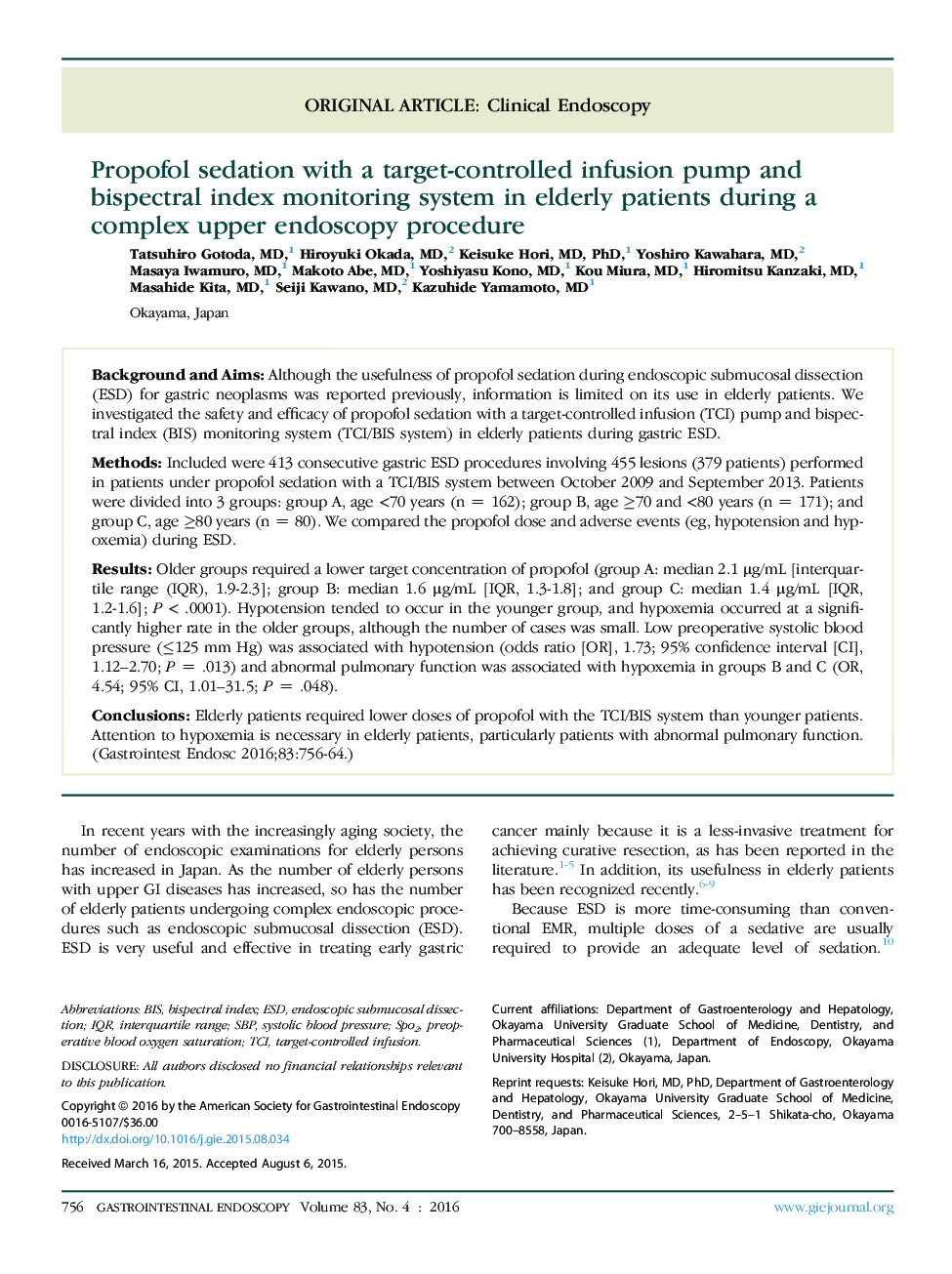| Article ID | Journal | Published Year | Pages | File Type |
|---|---|---|---|---|
| 3301716 | Gastrointestinal Endoscopy | 2016 | 9 Pages |
Background and AimsAlthough the usefulness of propofol sedation during endoscopic submucosal dissection (ESD) for gastric neoplasms was reported previously, information is limited on its use in elderly patients. We investigated the safety and efficacy of propofol sedation with a target-controlled infusion (TCI) pump and bispectral index (BIS) monitoring system (TCI/BIS system) in elderly patients during gastric ESD.MethodsIncluded were 413 consecutive gastric ESD procedures involving 455 lesions (379 patients) performed in patients under propofol sedation with a TCI/BIS system between October 2009 and September 2013. Patients were divided into 3 groups: group A, age <70 years (n = 162); group B, age ≥70 and <80 years (n = 171); and group C, age ≥80 years (n = 80). We compared the propofol dose and adverse events (eg, hypotension and hypoxemia) during ESD.ResultsOlder groups required a lower target concentration of propofol (group A: median 2.1 μg/mL [interquartile range (IQR), 1.9-2.3]; group B: median 1.6 μg/mL [IQR, 1.3-1.8]; and group C: median 1.4 μg/mL [IQR, 1.2-1.6]; P < .0001). Hypotension tended to occur in the younger group, and hypoxemia occurred at a significantly higher rate in the older groups, although the number of cases was small. Low preoperative systolic blood pressure (≤125 mm Hg) was associated with hypotension (odds ratio [OR], 1.73; 95% confidence interval [CI], 1.12–2.70; P = .013) and abnormal pulmonary function was associated with hypoxemia in groups B and C (OR, 4.54; 95% CI, 1.01–31.5; P = .048).ConclusionsElderly patients required lower doses of propofol with the TCI/BIS system than younger patients. Attention to hypoxemia is necessary in elderly patients, particularly patients with abnormal pulmonary function.
